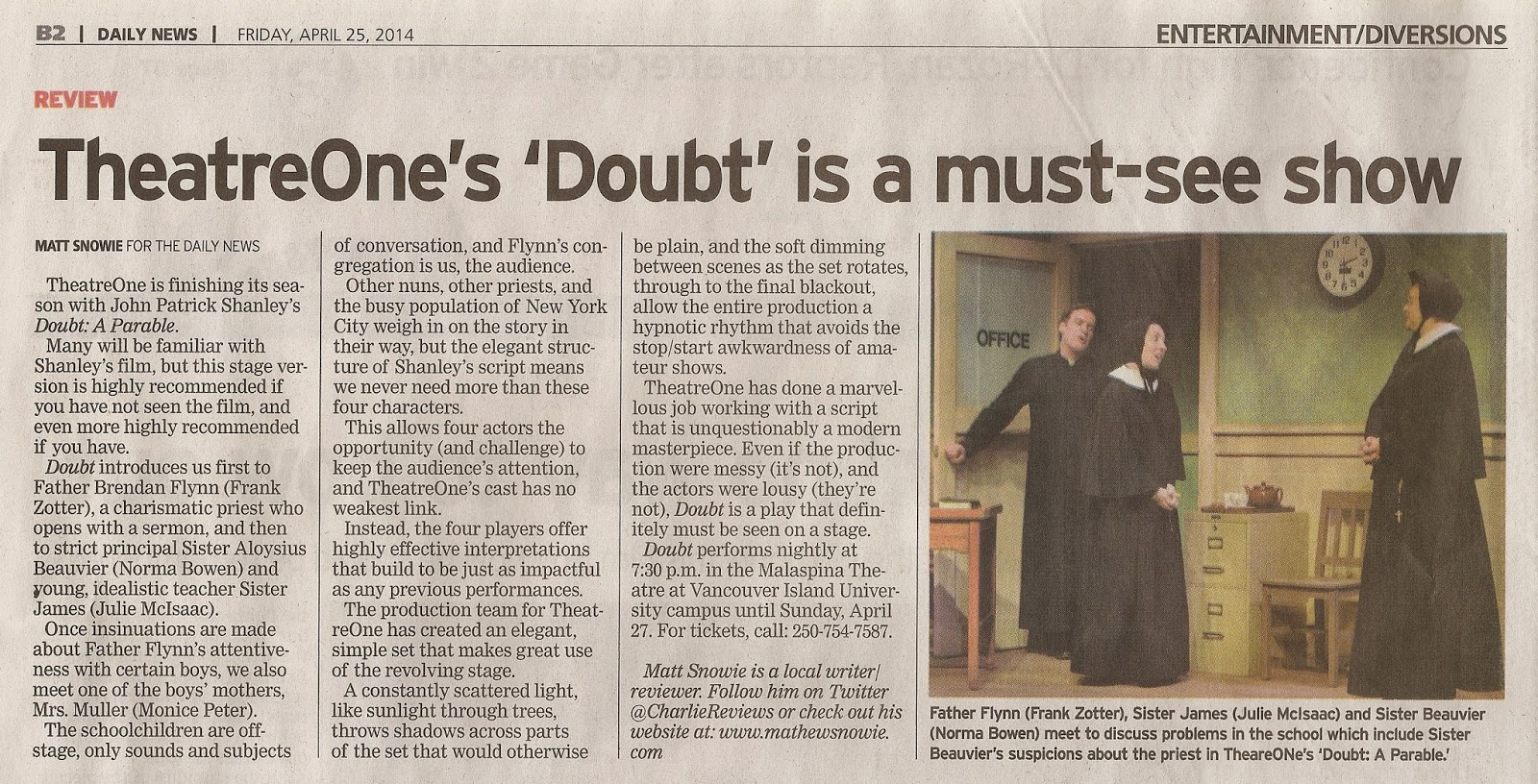If there is a purpose to film, a single reason to continue making them, then that has to be their ability to reflect life as we wish to see it. Making a film reflect reality is actually more difficult, as any documentarian will tell you, but the reflection of life as we would like to see it is - in my opinion - far more important. Films can provide dreams to those who would otherwise wollow in pain and poverty, and they can illustrate goals for where we want to go as a society, where the next technological break should come, or just what part of the world we would like to explore if we get the chance to go on vacation. Therefore, I it as a dangerous and horrible pattern how many short films dealing with youth and LGBT issues end in suicide.
There isn't much value in listing all the offenders, but they are not hard to find. In this argument I will look at the prototypical story points of a gay coming-of-age drama:
1. Straight-minded character has a moment of same sex attraction
2. Breaking away from core, "straight" friends the character acts on the attraction
3. No matter what reaction is, it results in the character being "outed" to one or all other characters
4. Distraught and bullied, character is faced with immediate choice
5. Character choses death
First of all, no one North of 2 on the Kinsey scale is completely unaware of same sex attraction until their mid teens. There is a case to be made that films on this subject are rarely able to get younger actors to participate because of child pornography issues, and the age of sexual awakening is usually increased in films as a result. But the dependence on "love at first sight" is an overused trope in this case on par with its overuse in Hollywood romantic comedies.
The next issue with this outline is point 3. The first, secretive sexual act, the kiss in the doorway or under the bleachers or under the freeway overpass, is established as an event that the character does not want anyone to know about. Teens are particularly focused on keeping things secret, from their parents or friends or school authorities, so for this first kiss to immediately result in getting caught is a drastic oversimplification of the lives of teens.
Next, point 4, is the climactic choice. Despite other situations that can preceed it, the choice is usually the same by the end of the film: live or die. This is not an unreasonable choice to wish upon a character at the end of a film since if the final choice was between which colour shirt to wear the next day it would have less immediate urgency for the audience. But the fact that this choice usually comes within hours of the character being outed only shows that the writer believes teens have absolutely no impulse control.
Now, I do remember being a teen and having poor impulse control, but when it comes to a choice of life or death, I know it takes longer than an hour to decide.
But the film ends with the character stepping off a roof, bleeding out behind a locked bathroom door, or any other horrible scenario that is supposed to show the characters who bullied, who disowned, who lashed out that their actions were wrong and they have lead to this. It also shows the audience that life is not worth fighting for, and if you find yourself being ostracized by your family and peers there is nothing you can do so you might as well kill yourself.
This is why I dislike Romeo and Juliet. If Romeo had not been such a drama queen and just waited, thought things through, then Juliet would have woken up and the aweful plan would have actually worked. But it seems, to the mind of the angsty modern dramatist, that Romeo's quick purchase of poison was made rationally, and we get to witness the endless repeatitions.
Ironically, the gay-inversion of Romeo and Juliet, Private Romeo (4 stars), replaces "death" with "expelled from military school". The film actually blends the modern story with an English class reading the play, but the implication is that the real love story does occur and it is just being presented to us with higher language on top. So instead of killing himself over his dead love, Private Romeo "commits suicide" by getting caught with his lover, and they are, we assume, expelled and live happily ever after. To my mind this is the only form of suicide acceptable at the end of a gay teen film.
If the suicide occurs earlier to a supporting character then the film is a legitimate exploration of the effects of suicide, but if it is tagged on as the character's last choice it is a bullshit cop out that disrespects the characters and only manages to affect the questioning teen who finds it on YouTube and becomes just a little bit more discouraged with life. Unacceptable.












